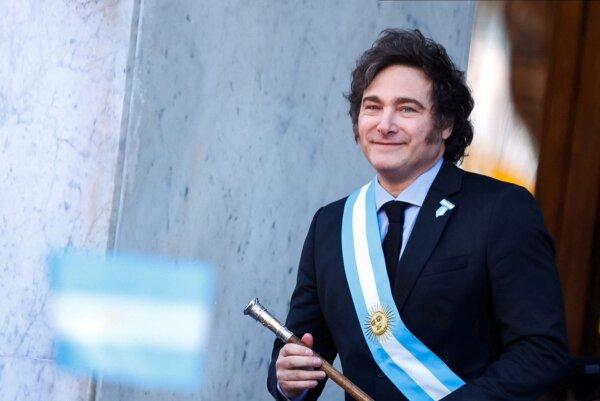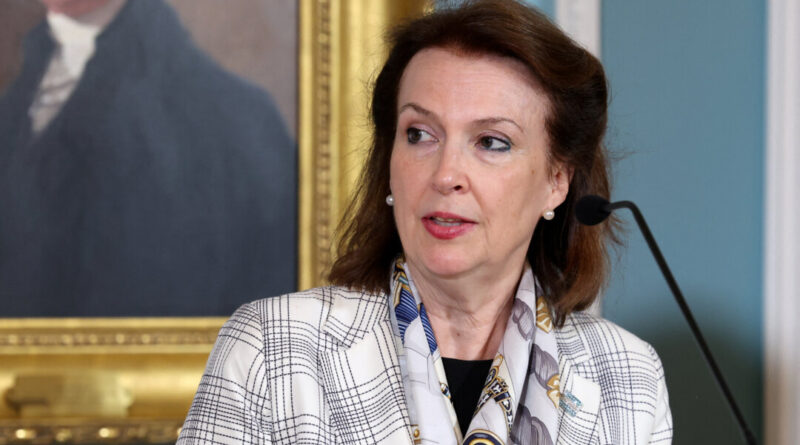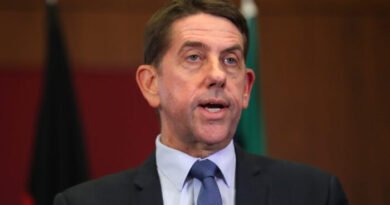Milei dismisses Foreign Minister who endorsed UN resolution in support of Cuba
After Wednesday’s vote, the office of Argentina’s president pointed out, ‘Our country is categorically opposed to the Cuban dictatorship.’
Argentinian President Javier Milei has sacked his foreign minister after the country voted in favor of an annual resolution at the U.N. General Assembly calling for the lifting of the U.S. economic embargo on Cuba.
“The new chancellor of the Argentine Republic is Mr. Gerardo Werthein. End,” Adorni wrote.
Mondino was fired hours after Argentina joined 186 nations in voting to end the embargo against Cuba.
Only the United States and Israel voted against the nonbinding resolution, with one abstention, from Moldova.
Milei’s office later confirmed in a statement that Mondino was dismissed because of the vote at the United Nations.
“Our country is categorically opposed to the Cuban dictatorship, and it will remain firm in promoting a foreign policy that condemns all regimes that perpetuate the violation of human rights and individual freedoms,” the statement said.
Internal Audit of Foreign Ministry
Milei’s office also said there would be an internal audit of the Foreign Relations Ministry, “with the aim of identifying promoters of agendas opposed to freedom.”
A 69-year-old career diplomat, Lagorio was only appointed in March and would have cast his vote following orders from Mondino.
Milei, a libertarian and strong supporter of both the United States and Israel, was elected president last year and, since his inauguration in December 2023, has markedly changed his country’s foreign policy.
He has supported Israeli Prime Minister Benjamin Netanyahu’s government over the conflict with Hamas in Gaza and Hezbollah in Lebanon.
His stand is in marked contrast with most Latin American countries.
Colombia and Bolivia have severed ties with Israel, and Brazil has withdrawn its ambassador from Tel Aviv.
Last week, Mondino’s office was forced to withdraw a press release it had put out that referred to the “Falklands,” instead of the “Malvinas,” the Argentinian name for the British-controlled archipelago in the South Atlantic over which the two countries fought a war in 1982.
In May, during a visit to China, she was heavily criticized after she said that “all Chinese look like the same” in a media interview.
The visit had been intended to improve relations with Beijing.
The United States first imposed partial sanctions on Cuba in 1958, after the communist regime led by Fidel Castro took power.
In February 1962, a year after the failed attack at the Bay of Pigs, then-President John F. Kennedy imposed full economic sanctions on Cuba.
Cuba Says Sanctions ‘Commercial Warfare’
In a statement published on Wednesday, the U.N. said, “The General Assembly today reiterated its call on the United States to end its economic, commercial and financial embargo against Cuba, as Cuba’s Minister for Foreign Affairs called the blockade against his government ‘commercial warfare’ and ‘a crime of genocide.’”

Argentinian President Javier Milei takes the stage outside the Cabildo during the commemoration of the 214th anniversary of the May Revolution, in Cordoba, Argentina, on May 25, 2024. Leandro Bustamante Gomez/Reuters
On June 16, 2017, Trump issued a National Security Presidential Memorandum, strengthening the U.S. sanctions on Cuba.
Any U.S. business or individual engaging in trade with those on the list would be in breach of sanctions, a criminal offense.
The Associated Press and Reuters contributed to this report.





